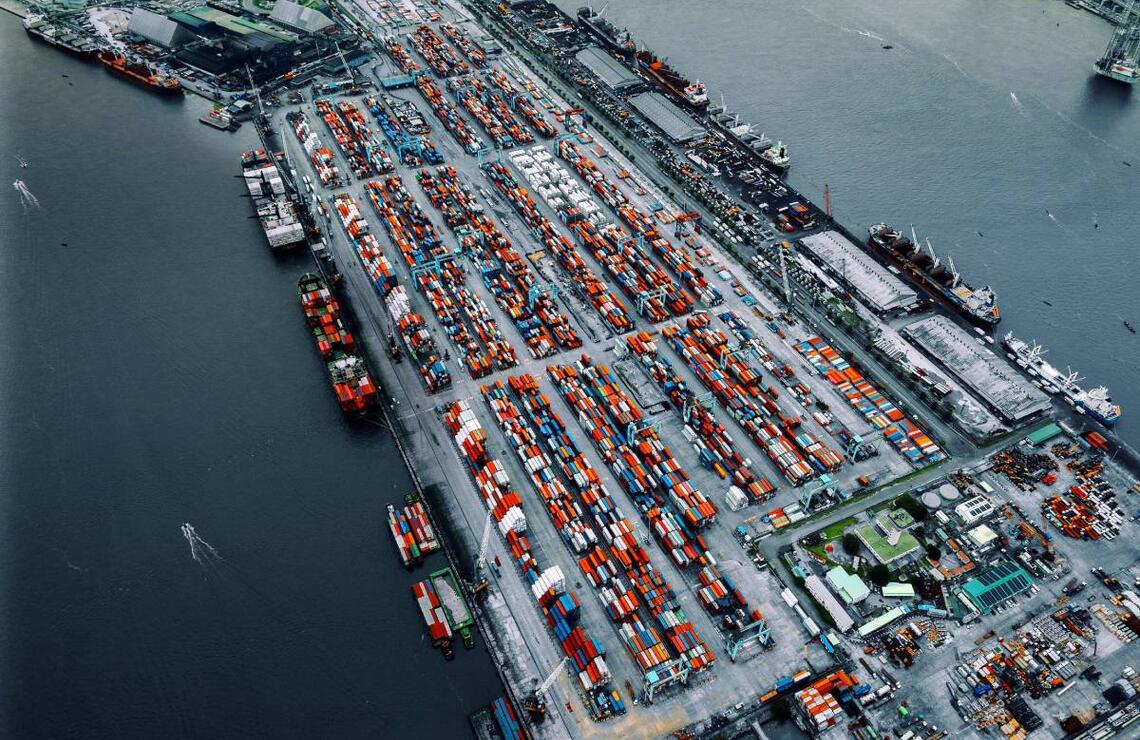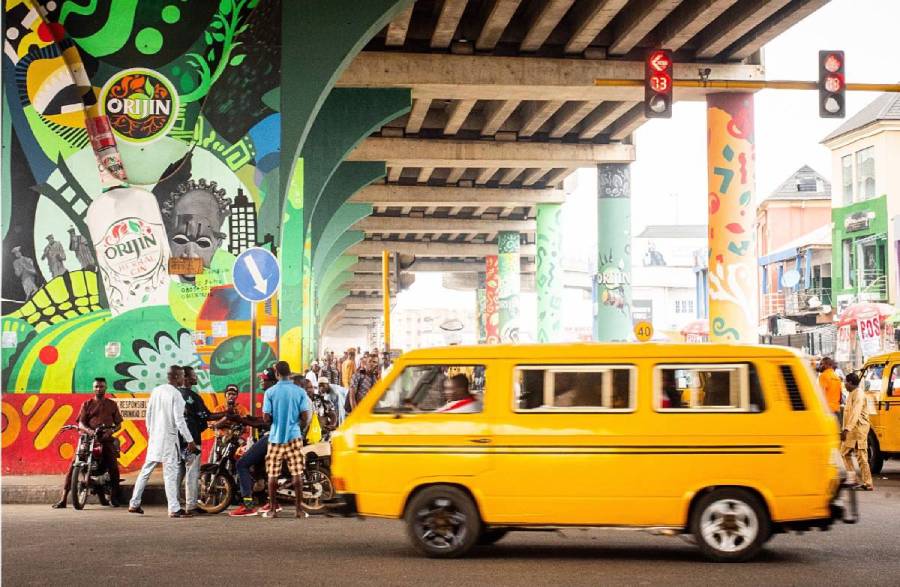
Reforms, full steam ahead
Bola Tinubu, president of a federation of 225 million people, is accepting the consequences of courageous and painful measures. This is a crucial agenda if Nigeria is to at last become a leading economic power.
“The fuel subsidy is gone,” announced Muhammadu Buhari's successor's tersely during his inaugural speech. Subsequently, Bola Tinubu declared his intention to liberalise the foreign exchange market to allow the naira to regain its value. Almost immediately, the Central Bank of Nigeria abandoned its years-long currency peg and allowed the naira to trade freely against the US dollar. Fuel subsidies, in place since the late 1970s, were provided for in the federal budget until June 2023. President Tinubu demanded that they be ended immediately, even though this measure had long been considered a ‘social gain’ by the middle and upper classes... Eighteen months later, Tinubu's stance has not budged one iota. Despite the #EndBadGovernance movement which called for the return of the subsidy in August. Despite the constant tug-of-war with the main trade unions, which are also demanding an increase in the minimum wage. And despite the countless visits, day and night, of governors and members of parliament from his majority for private interviews at the Aso Rock Villa, the presidential mansion in Abuja. Not to mention the sharp criticism from both his opponents Atiku Abubakar (PDP) and Peter Obi (Labour Party). He hears everything. He listens to everyone. But Nigeria's Head of State, sure of himself and his method, is sticking to his strategy. Unflinching in his approach, despite soaring prices for fuel at the pump, which have risen from 185 naira to over 1,200 naira in the states furthest from Lagos, where refined products imported into Nigeria arrive.
The President is aware of the impact on the vast majority of his fellow citizens. Nevertheless, ending fuel subsidies is also a strong signal, not only to the oil industry as a whole, but also to all public and private economic operators in Nigeria, according to Olabode Sowunmi, an oil and gas expert at Cabtreng Consulting: “The way Nigeria organises and balances its accounts, but also the way it administers its budget and manages its economy, is problematic. It's not like it just happened yesterday. As a result, the country can no longer afford these fuel subsidies.”
Major national projects
President Tinubu is a chartered accountant, and it is only natural that he should tackle Nigeria's accounts, as the IMF and World Bank have been suggesting for several years. Almost three-quarters of the state budget is systemically financed by oil revenues. This remains the case for the 2025 budget, presented at the end of November 2024.
The President's aim is to transform Nigeria for the 21st century, just as he did in Lagos between 1999 and 2007. At that time, the city's former governor used an unprecedented fiscal policy to boost the finances of Nigeria's south-western megalopolis. Having been deprived of a federal allocation by the then president, Olusegun Obasanjo, Tinubu put his administration's tax department into overdrive. He taxed major national and international companies headquartered in the country, as well as the emblematic danfos - the yellow minibuses that zoom around and across the city.
Seventeen years later, the President tabled a tax bill in the Nigerian Parliament - for the time being barely apparent to the population, but which could in the long term change Nigeria's reputation among international financial circles, if it is implemented. There is talk of harmonising and simplifying tax agencies at all levels, from federal to local, using digital technologies to collect taxes, and increasing VAT in stages from 10% next year to 15% in 2030. The idea is for tax receipts to account for 18% of gross domestic product by 2026.
A government leading by example

This is not necessarily wishful thinking. In 2011, taxes accounted for a fifth of wealth production. The inclusion of the informal sector in the calculation of Nigeria's GDP since 2014 has automatically reduced the tax burden. Because they are informal, and therefore have no legal existence, whole swathes of the economy pay no tax on profits or income. This is why in 2021 taxes represented only 10.86% of GDP. The President is therefore banking on the taxation of Africa's fourth largest economy, and therefore on regularising the informal sector.
A potentially winning wager on paper, given the contribution of this youth-driven sector to the economy. According to the IMF, Nigeria's informal sector accounted for more than half (65%) of the country's gross domestic product in 2017. Today, many experts estimate that this share is 58.2%. However, the challenge is immense: in a country where the population will be close to 377 million by 2050, President Tinubu urgently needs to convert the current discontent of tens of millions of Nigerians, dissatisfied with the price of fuel, the price of electricity and the collapse of their purchasing power, into support for putting the country back on a sounder financial footing. This is because, as the Auditor General of the Federation's 2023 budget accounts report shows, the government earned revenue of about N6 trillion, spent N19.5 trillion and recorded a deficit of N13.5 trillion, or -225% of total revenue, more than three times what it earned in revenue.
Bola Tinubu's announcement of savings in the federal government's running costs, including the elimination of duplication in federal administrations and agencies, sends a strong message: the Federation has to set an example. For politicians from the South West, the social democrat Obafemi Awolowo has long been a point of reference: a major figure in the struggle for Nigerian independence in the 1950s, then an advocate of federalism, the former Prime Minister of the Western Region promoted policies based on the welfare state, in particular making education and healthcare free. Tinubu, also a Yoruba, embraced Awolowo's legacy. But he also drew inspiration from another source in his region: businessman and politician Moshood Abiola who, although he won the presidential election on 12 June 1993, was never sworn in and died in prison. Abiola supported market deregulation as a way of moving Nigeria away from the centralised, autocratic management of military juntas. By acceding to the highest office thirty years after the tragic failure of his mentor, President Tinubu wants to leave a mark on the history of his country and be recognised as a liberal reformist statesman.